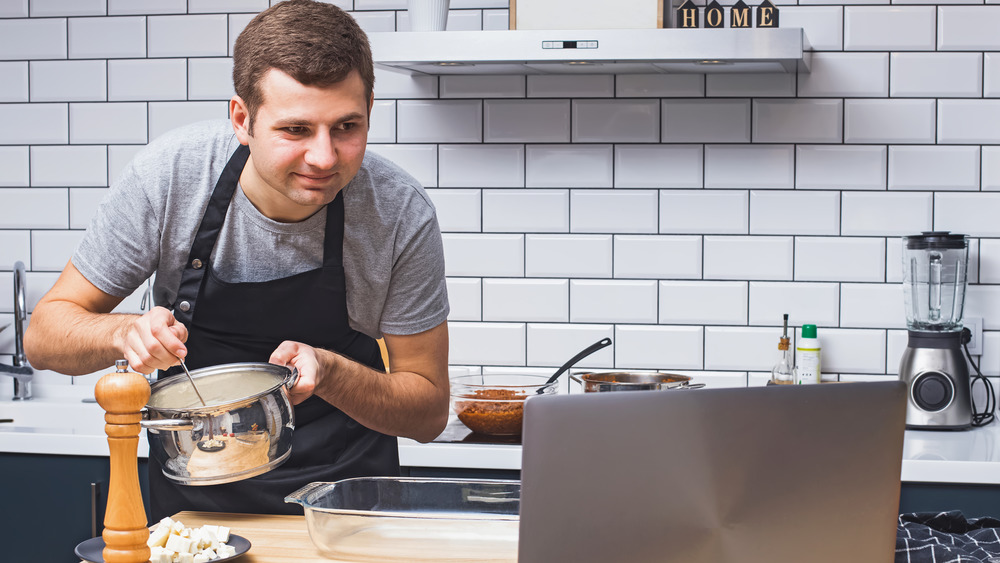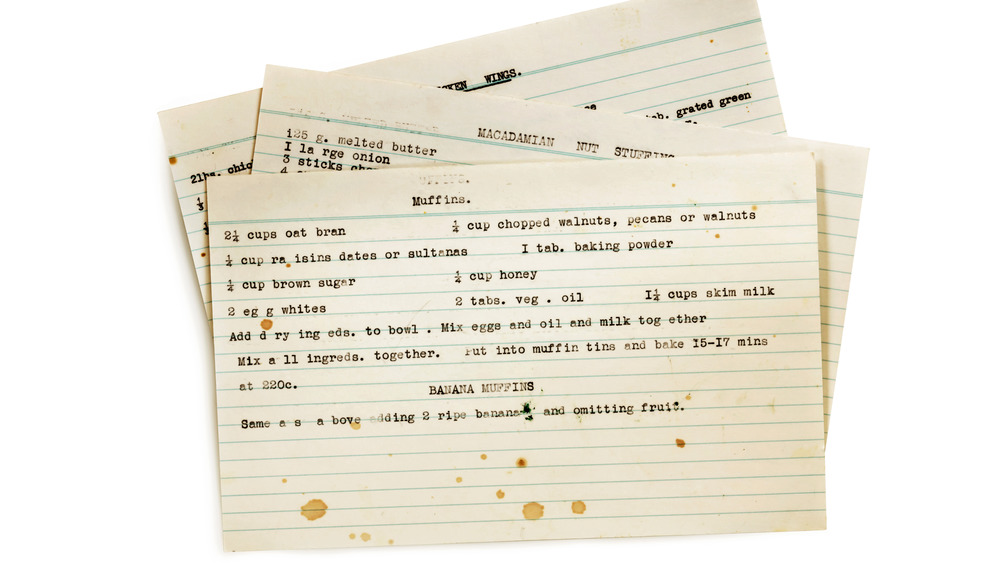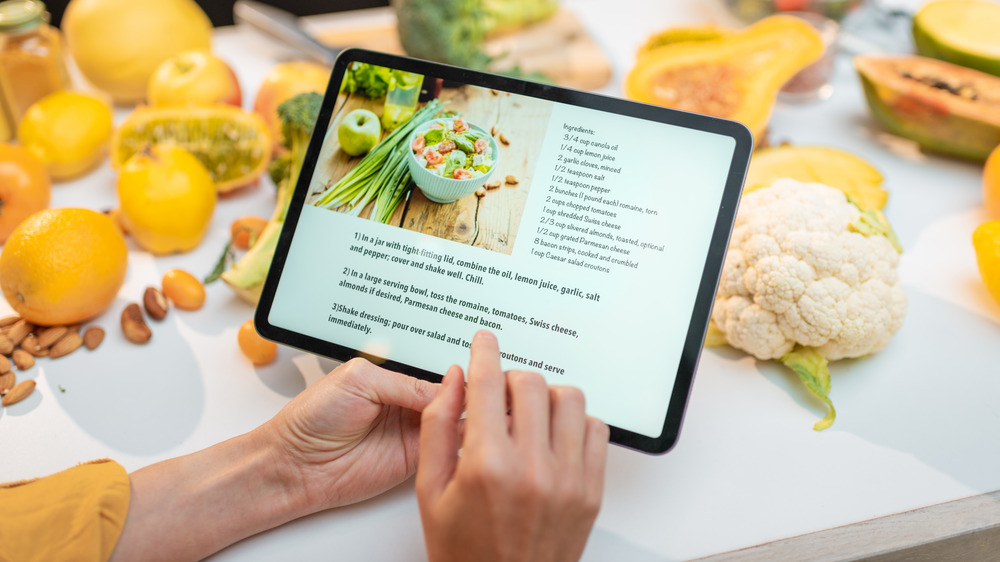How To Tell If An Online Recipe Will Actually Work
Online recipes can be just soooo annoying. Okay, so it's cool having every recipe you could ever want right at your fingertips for free – no need to pay top dollar for some obscure cookbook just because you want to make baked whale in white sauce. Why, though, must so many food blogs start with something like "Call me Ishmael," and then go on for 212,755 more words before they get to the actual recipe? Yes, it's fascinating to hear how you hunted the whale and all, but please, the rest of us just bought our whale meat at Kroger. Also, don't even get us started on the comments. Tweaks are ok, but what's really annoying are 5-star rated recipes where every single comment and rating comes from people who haven't cooked the dish but feel compelled to weigh in with "looks yummy!!" and "cool harpoon moves!" Real helpful, like people who review Amazon products they haven't yet received.
One more pet peeve is recipes ending with the directive "Enjoy!" Seems a bit rude, delivering it in imperative mode like that. Instead, it might be more polite to say a simple "I hope you enjoy this dish." Petty annoyances aside, the worst thing about online recipes is that in many cases, you never know quite what you're going to get. Star ratings or no, some recipes turn out, others do not. So how can you boost your chances of recipe success? You're going to have to do some homework.
Choose a recipe from a well-established source
A lot of online recipes are the 21st-century equivalent of those old spiral-bound community cookbooks, you know, the ones entitled "Good Eats from Fargo's Fabulous Feets Dance Club 1973" and filled with 50 different variants on chicken casseroles and Jell-O salads. Ok, so maybe not all online recipes are quite so, er, charmingly retro as all that, but the one thing many of them have in common with such books is that they've been devised by amateur chefs, may not have been tested, and, in some cases, may not even have been transcribed correctly.
As Delicious Living editor Elisa Bosley told Sunset, the best way to determine whether a recipe you find online is likely to work is to consider its source. If it's from some obscure blog with 3 followers called something like "Peppermint Sparkle's Magical Kitchen Kreations," that may just be a red flag. If, on the other hand, it's from a legit food-related website, particularly if it includes such terminology as "from the test kitchen" or speaks of a "recipe tester," then you're on the right track. But what if Peppermint Sparkles' Mystical Mocha Puffs sound so irresistible you've simply got to try them? In that case, Bosley suggests you may have to take a close look at the recipe and analyze what's likely to work and what may need to be adjusted before you start cooking.
Read all the way through the recipe before bookmarking it
Once you've found a recipe, Bosley says you should read it all the way through and mentally walk yourself through all of the steps – yes, even shopping for ingredients in case there's something called for that you might not know how or where to find. (What aisle does Kroger keep ostrich eggs in, anyway?) You should also check to see if all ingredients are accounted for. Sometimes you may see a recipe that calls for, say, half a stick of butter, but the directions never tell you what to do with that butter. (Slather it on top as a condiment?) Other times, butter won't appear in the ingredients list at all, yet you'll get to a point in the directions where they not only want butter, but it needs to be softened. Oh, and they may not even tell you how much butter to use!
If (and only if) you can figure out how to obtain all the necessary ingredients, or else make substitutions, and you can also intuit the right measurements for any ingredients that the recipe developer may have been a bit vague about (does "2 garlic" mean cloves or heads?) as well as figuring out what to do with any ingredients omitted in the directions, at that point you may proceed with the recipe. If any of the missing pieces are still missing after you've thought things through, though, you should probably consider it a write-off.
Read the comments, and look for useful ones
Food and Wine's former editor Tina Ujlaki also weighed in on how to select an online recipe, offering MyRecipes readers a few tips on the subject. She does say that reading the comments on a recipe can be helpful, assuming they're not of the aforementioned "these are just the cutest cookies I hope to bake someday!" variety. Ujilaki first reiterates Bosley's advice to choose your recipe source wisely, which is always a good place to start. Chances are if you're using a source such as The New York Times, readers weighing in on the recipe are more likely to be offering useful commentary rather than meaningless compliments meant to boost the recipe developer's ego or attesting only to their food photography skills.
Ujilaki says she usually reads the top 20 comments since she finds that these tend to provide a pretty good idea as to whether any given recipe's going to be worth making. She also says to look for a pattern in tweaks people may be making – if just about everyone is saying to cut the sugar in half, then you should probably consider doing just that.



